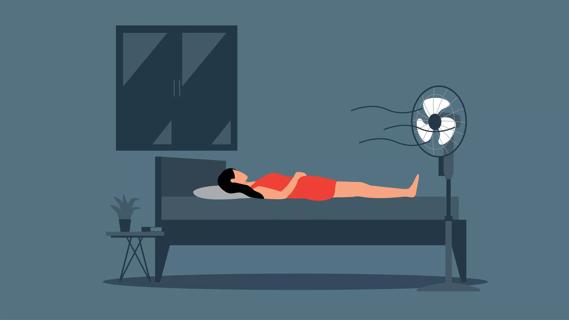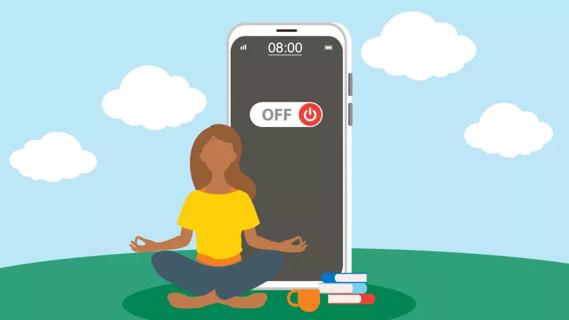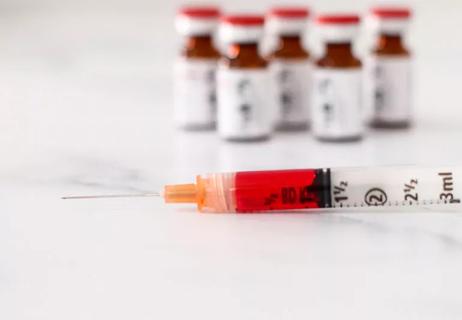Plus, 4 warning signs to look out for

Between 2001 and 2017, suicide rates in the United States increased by more than 30%. Alarmingly, suicide was the second-leading cause of death for people between the ages of 10 and 34. Men appear to be at a higher risk. Suicide rates among them are four times higher than those of women.
Cleveland Clinic is a non-profit academic medical center. Advertising on our site helps support our mission. We do not endorse non-Cleveland Clinic products or services. Policy
While it may seem like a hopeless situation, when you know the risk factors and recognize the warning signs, suicide can be prevented. Psychiatrist Tatiana Falcone, MD, offers information to help you determine if a loved one is at risk.
There isn’t just one reason for why a person contemplates or attempts suicide. But having one of these five risk factors may make occurrences of it more likely:
One-third of people who die by suicide were intoxicated at the time of death. “If someone drinks more or misuses a prescribed anxiety medication, it can create impulsivity,” says Dr. Falcone. “For a person already feeling hopeless, substance abuse increases the likelihood they will think about or attempt suicide.”
Financial stress, bullying or stressful life events such as divorce may make someone more prone to suicide. “In children and teens, we know social media can be detrimental if someone is bullied or experiences negative conversations,” says Dr. Falcone. “These incidents can be triggers for suicide attempts.”
Less than half of people who die by suicide have a mental health condition such as bipolar disorder, schizophrenia or a personality disorder. “We also know that depression and anxiety are major contributors,” says Dr. Falcone.
A chronic illness, such as diabetes or epilepsy, may result in feelings of helplessness that lead to suicidal ideation. “People with a heart condition or asthma deal with many struggles daily,” notes Dr. Falcone. “Feelings of hopelessness can increase as they contemplate managing the condition long term or as it worsens. Physical pain is another reason why people may contemplate suicide.”
Experiencing abuse or a traumatic incident, including a traumatic brain injury, increases the likelihood that someone will attempt suicide. Someone is also at increased risk if they have previously attempted suicide or have a family history of it.
“If a loved one has one of the suicide risk factors, you may want to keep a closer watch, particularly if they are using alcohol or drugs more often,” says Dr. Falcone. “It’s also important to look for major behavior changes that might indicate suicidal ideas.”
Red flags your loved one is considering suicide include:
“Hopelessness is a strong sign someone may have suicidal thoughts,” says Dr. Falcone. “This includes feeling like nothing has or will work to improve their mood and outlook.” Other signs might be agitation, anger, dramatic mood swings, or difficulty falling or staying asleep.
Someone who previously participated in activities with family or friends but now spends more time isolated or disconnected could be at greater risk. “Pay attention to whether your loved one is becoming more withdrawn and avoiding connection — in-person or online,” says Dr. Falcone.
“Suicide survivors reported worrying about the present and the future in the 30 minutes before a suicide attempt,” says Dr. Falcone. “Because of this, we know panic attacks may be a sign or trigger for suicide.”
Being increasingly careless, reckless or impulsive could be a sign that a loved one is contemplating suicide. “We see an increase in self-injuring behavior, such as cutting,” says Dr. Falcone. “We don’t take it as a suicide attempt, but it’s showing us the person needs help addressing the stressors that make him or her want to hurt themselves.”
If you notice one or more of the warning behaviors, connect your loved one with their provider or a mental health professional. “If the threat of suicide feels imminent, do not leave them alone,” says Dr. Falcone. “Instead, take them to the nearest emergency department for evaluation.”
To determine if your loved one needs immediate help, watch for these behaviors:
Fortunately, dealing with a suicide risk factor — or even exhibiting warning signs — doesn’t mean someone will attempt it. But if you or someone you know needs help, the 24/7 988 Suicide & Crisis Lifeline is a free resource that connects people in crisis to a local counselor through chat, text or phone call. If you feel like a loved one is in immediate danger, take them to the hospital or call 911. The key to saving a life is to get help sooner than later.
Learn more about our editorial process.

Getting to the root cause of night sweats — like menopause, medication side effects, stress or anxiety — can help you manage them

A pro-level laugh can release good-for-you oxytocin, dopamine and endorphins

Identify your triggers, set ground rules for your break and start practicing mindfulness

If you have low B12 or a true deficiency, these shots can work wonders

Connecting with others, going for a walk or focusing on sleep quality can help more than you might realize

Reaching menopause very early raises your risk of certain health conditions

Like being your own best friend in times of trouble, self-love is an act of self-preservation

It’s not about embracing your dark side — it’s about showing up for yourself

Your metabolism may torch 1,300 to 2,000 calories daily with no activity

A gentle touch in all the right places may help drain your sinuses